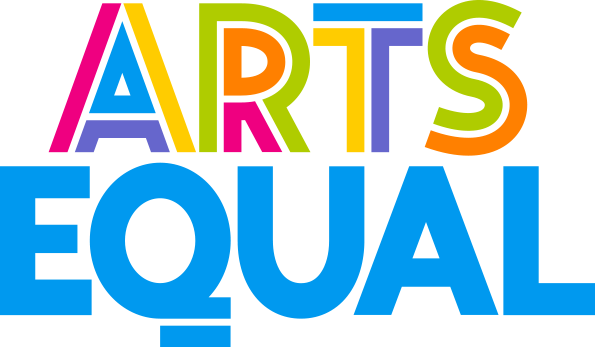Ilmoittaudu mukaan ArtsEqualin "Taide, taidekasvatus ja myöhäisikä” –kollokvioon! - Ilmoittaudu mukaan ArtsEqualin "Taide, taidekasvatus ja myöhäisikä” –kollokvioon! - Artsequal
null Ilmoittaudu mukaan ArtsEqualin "Taide, taidekasvatus ja myöhäisikä” –kollokvioon!
Perjantaina 29.4.2016 klo 9-14. Agora, Musiikkitalo, Helsinki.
“Taide, taidekasvatus ja myöhäisikä” –kollokvio kokoaa yhteen ArtsEqual-hankkeen tutkijoita ja hankkeen verkostokumppaneita, jotka toimivat myöhäisiän taidekasvatuksen parissa. Kollokvion tavoitteena on ikääntyneen väestön toimijuuden ja osallisuuden vahvistaminen taiteen ja taidekasvatuksen kentällä. Kyseessä on keskustelutilaisuus ja toivomme erityisesti konkreettisia ehdotuksia miten taiteen ja taidekasvatuksen saavutettavuutta voidaan edistää myöhäisikäisten keskuudessa.
Klo 9.00 Tilaisuuden avaus
Klo 9.05-10 Andrea Creech (University College London): “Participatory arts in later-life”
Klo 10-11 Anna-Mari Rosenlöf (Turun ammattikorkeakoulu): "Elämä pitkä - taide lyhyt. Ikäihmisten kulttuuripalveluiden rahoitus ja rakenteet"
Jenni Räsänen (Helsingin kulttuurikeskus):"Kulttuurisen vanhustyön käsite ja toimijoiden roolit"
Klo 11-11.30 Kahvi
Klo 11.30-12.45 Teemakeskustelut
Tuulikki Laes (Taideyliopiston Sibelius-Akatemia) ja Kaisa Määttä (Riskiryhmä-yhtye): "Myöhäisikäiset toimijoina ja taiteen harrastajina"
Helena Malmivirta (Turun Ammattikorkeakoulu):"Myöhäisikäiset kulttuurin kuluttajina" ja "Taiteen ja kulttuurin merkitys vanhustyössä"
Klo 12.45-13.45 Laura Huhtinen-Hildén (Metropolia Ammattikorkeakoulu): "Näkökulmia kulttuurisen vanhustyön, taidekasvatuksen ja taiteen soveltavan käytön asiantuntijuuteen"
Klo 13.45-14 Yhteenvetoa
Kaikkien alustusten jälkeen on varattu keskusteluaikaa. Tilaisuuden puheenjohtajana toimii ArtsEqual-hankkeen varajohtaja Kai Lehikoinen.
Lisätietoja Sanna Kivijärveltä sanna.kivijarvi@uniarts.fi, p. 050-3087889.
Andrea Creech: Participatory arts in later-life
In this paper I will provide an international perspective on the potential for later-life participatory arts to enhance resilient and creative ageing.Major demographic transitions are well underway; in middle and high income countries the proportion of the population aged over 75 will have increased five-fold between 1950 and 2050. Within this context, significant problems relating to the prevalence of social isolation, depression and chronic disease amongst older people have been highlighted, requiring cost effective and compassionate responses. There has thus been much interest in innovations that will prolong and sustain a positive quality of life. In response, functional, moral, liberal and critical rationales for community-based creative opportunities have been proposed, underpinned by evidence that later-life can be a period of profound creativity. Older people, it is suggested, crave creativity, as it is within creative spaces that they can protest against a narrative of decline and decrepitude and instead perform creative acts, explore new ways of ‘becoming’ and experience a humanised old age and continuing sense of citizenship. Adopting the theoretical lens of a salutogenic model of health, whereby positive adjustment to health changes is thought to relate to, for example support for wellbeing, agency, skills, social belonging, communication, cognitive understanding, and structure, I interrogate case study examples concerned with the principles and practices of participatory community arts experiences for older people. I focus in particular on music, arguing that musical social networks may provide health affordances relating to creative ageing, including a psychological component (e.g. resilience, meaningfulness, identity, belonging), a behavioural component (e.g., effort, intensity, focused concentration), and positive physiological outcomes that contribute to shared emotional, relational or affirmative outcomes.
Studia Generalia –luento 28.4.2016 klo 17-18.30 Musiikkitalon auditoriossa. Ei ilmoittautumista:
Andrea Creech: "Ageing creatively with music"
There is growing interest in the potential for creative musical engagement to enhance resilient and creative ageing. Later-life can be a period of profound creativity, where older people use creative outlets for reflection on their own unique stories and personal healing. It is within creative spaces that older people can experience a humanised old age and continuing sense of citizenship. Participants will be introduced to the salutogenic model of health, whereby positive adjustment to health changes relate to personal agency, skills, social belonging, communication, cognitive understanding, and structure. Case study examples will demonstrate how creative musical social engagement may foster positive physiological, cognitive, social and emotional outcomes.
Kuva: Kalle Kallio
